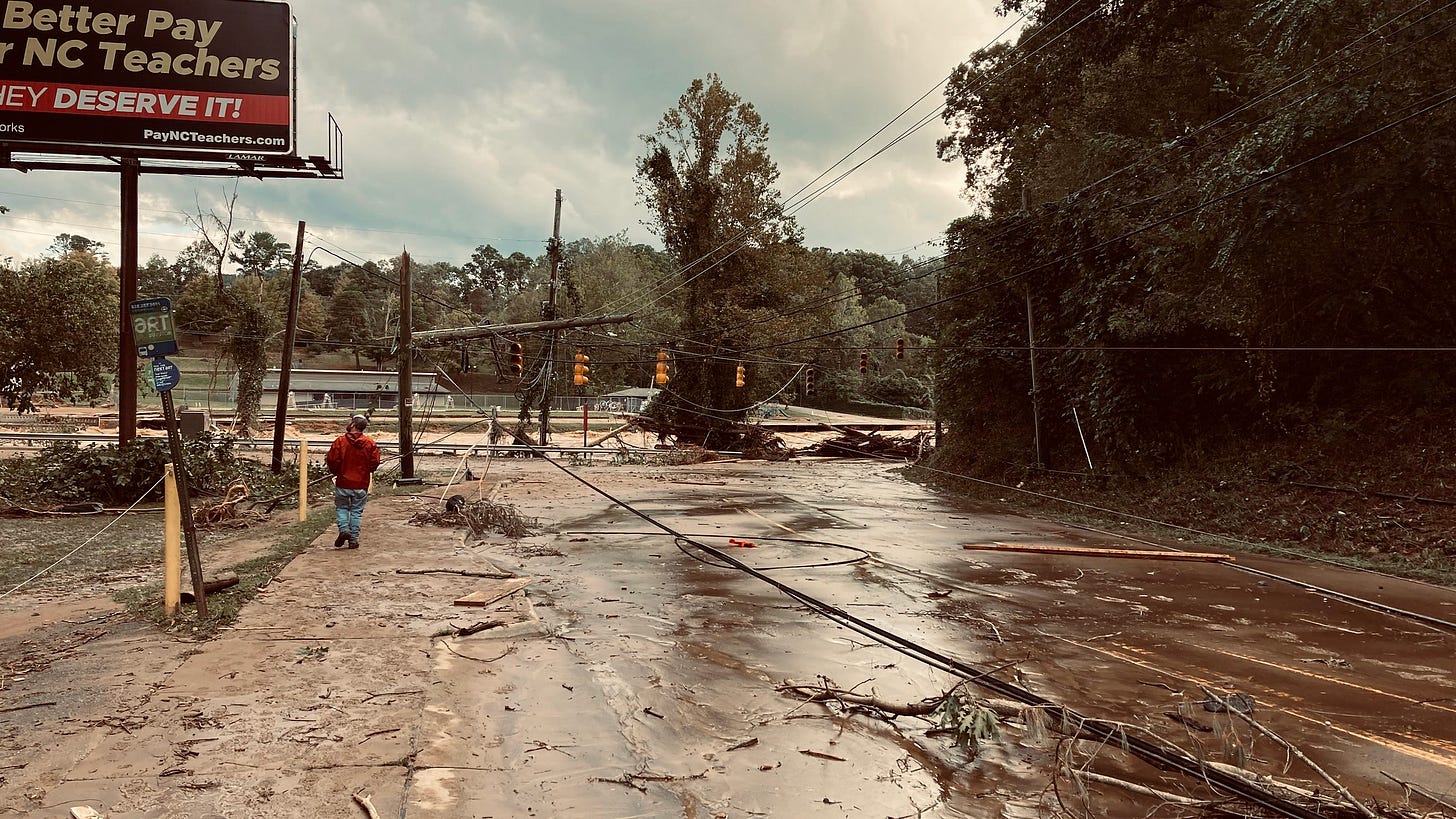
The wave of devastation wrought by Hurricane Helene was unprecedented. The wave of misinformation that followed was not.
In recent days, FEMA has had to respond to claims that it is stealing donations, seizing property, and diverting disaster aid to Ukraine — many of which were amplified by former President Donald Trump. This follows a troubling trend of rampant misinformation following climate disasters.
But post-disaster misinformation isn’t just harmless finger-pointing; in the wake of major disasters, misinformation makes a confusing situation worse and prevents people from getting the help they need.
A lot has been written about this, but I’m most concerned with the communications of misinformation — why it thrives and what, if anything, can be done to dispel vile nonsense and redirect focus toward something productive. That starts with recognizing a commonality shared by most conspiracies: fear.
“All a conspiracy has to do is the thing that scientists and facts and figures cannot: tap into the fear and desperation people are feeling and give them a target to hurl it at,” journalist Amy Westervelt wrote this week in her newsletter Drilled.
Fear works best if you have someone or something to fear. In shockingly messy events like hurricanes, a singular focus on a bad guy is grounding, making the situation more manageable and, therefore, less scary.
Unfortunately, the true culprit of Helene’s devastation is climate change (the warm sea temperatures that fueled Helene were made 200 to 500 times more likely by climate change). And climate change — with its abstract and inconvenient driver, carbon dioxide — doesn’t really make a great villain.
So what you end up with instead is a slew of recent climate disasters, all blamed on something else, such as in 2023, when people blamed space lasers, Oprah, and the military for causing devastating wildfires in Maui.
Misinformation is made worse by artificial intelligence and social media. For example, since Elon Musk took over Twitter (now X), the platform has loosened content moderation and allowed misinformation to thrive, with Musk himself amplifying conspiracy theories from his account.
As even Republicans have pleaded after Helene, this misinformation is a dangerous impediment to disaster recovery. But if we zoom out, misinformation is also a serious obstacle to longer-term climate goals, giving people reasons to ignore the root cause of disasters and redirect focus toward a made-up bogeyman.

The Intergovernmental Panel on Climate Change has recognized as much, concluding with “high confidence” that “rhetoric and misinformation on climate change and the deliberate undermining of science have contributed to misperceptions of the scientific consensus, uncertainty, disregarded risk and urgency, and dissent.”
I do actually think there is some place for fear in climate communications. As climate scientist Katherine Hayhoe points out in her book Saving Us:
“Sharing factually scary information can be an important first step for people who are complacent, who don’t think climate change poses a serious threat… If you’re not worried about climate change, why would you want to fix it?”
But she also offers an important caveat: When coupled with uncertainty, fear can also drive inaction. In other words, it’s not enough to be afraid of climate change; people also need solutions to tackle it.
We should also remember that fear can win elections. Every year, politicians stoke fear through negative advertising, usually by creating a scary world in which a political opponent wins office. That means so-called climate candidates may have to get a little dirty on the campaign trail.
Perhaps fear’s most lasting impact, however, is not what it does but what it does not. By stoking anger and division, fear costs us an opportunity for unity, which I still (perhaps foolishly) believe in, especially when it comes to climate.
I know that it’s insensitive at best and counterproductive at worst to emphasize unity, optimism, and hope in a place like Western North Carolina, where people are struggling to pick up the pieces of their lives. But I also think that climate, like the environment in general, offers a truly nonpartisan issue on which we can work together.
As Ronald Reagan(!) once said, “Preservation of our environment is not a partisan challenge; it’s common sense.”
Fear — with its distraction and division — is anything but.




Thanks for talking about this! I've been watching the coverage of Hurricane Helene + Milton play out because it's like a masterclass in misinformation and human psychological barriers to climate action. I am also afraid of the politicisation of climate disasters. The people most affected are also the least likely to have the funds or means to evacuate to safe areas - and who has time to vote when their home is being swept away?
“Fear” of climate change-fueled disaster is reasonable, fear of the Biden administration stealing FEMA funds to rebuild Kiev is not; “fear” of the rising cost of homeownership in small cities is reasonable, fear of migrants stealing and eating pets is not. One of the great tricks of modern disinformation is to not only distort people’s understanding of the connection between the real problems of their lived reality and the true underlying causes of those problems, but to redirect their anxieties towards frequently-insane falsehoods that do not address the root causes at all. Perversely, this leads to the root causes remaining unaddressed, the resulting problems getting worse, and fear compounding into cynicism that, at best, nothing can be done, and, at worst, everyone in power or seeking power is hopelessly corrupt or are themselve the root cause of their problems. The type of lies and fearmongering you document here are more than just dangerous to those experiencing the disaster—they are an accelerant of a nihilistic doom loop that endangers a democratic society’s ability to solve any problems at all.